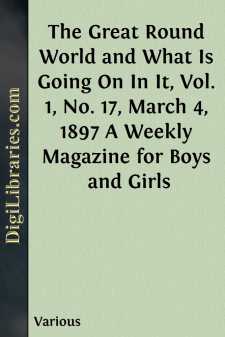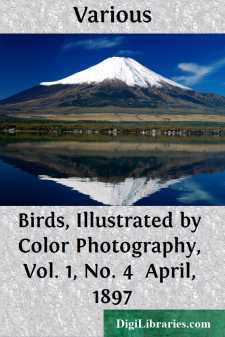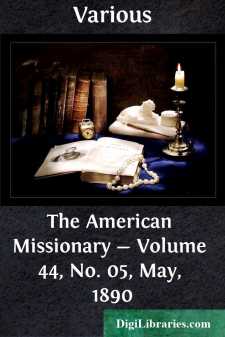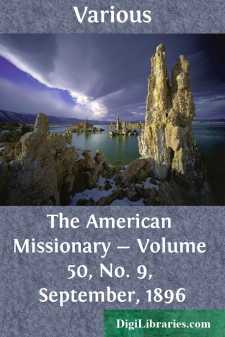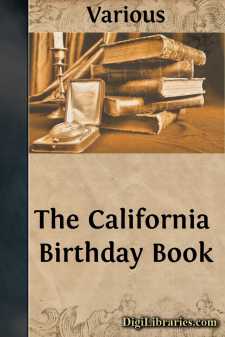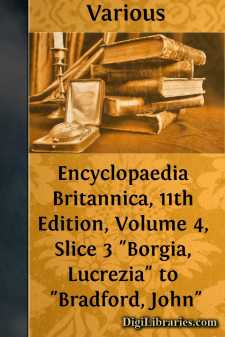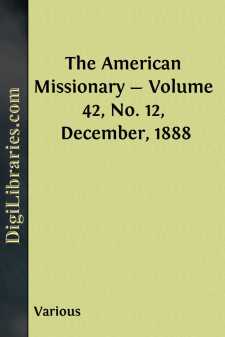Categories
- Antiques & Collectibles 13
- Architecture 36
- Art 48
- Bibles 22
- Biography & Autobiography 813
- Body, Mind & Spirit 142
- Business & Economics 28
- Children's Books 17
- Children's Fiction 14
- Computers 4
- Cooking 94
- Crafts & Hobbies 4
- Drama 346
- Education 46
- Family & Relationships 57
- Fiction 11829
- Games 19
- Gardening 17
- Health & Fitness 34
- History 1377
- House & Home 1
- Humor 147
- Juvenile Fiction 1873
- Juvenile Nonfiction 202
- Language Arts & Disciplines 88
- Law 16
- Literary Collections 686
- Literary Criticism 179
- Mathematics 13
- Medical 41
- Music 40
- Nature 179
- Non-Classifiable 1768
- Performing Arts 7
- Periodicals 1453
- Philosophy 64
- Photography 2
- Poetry 896
- Political Science 203
- Psychology 42
- Reference 154
- Religion 513
- Science 126
- Self-Help 84
- Social Science 81
- Sports & Recreation 34
- Study Aids 3
- Technology & Engineering 59
- Transportation 23
- Travel 463
- True Crime 29
Sort by:
by:
Various
The country residence of Mr. John Hinckman was a delightful place to me, for many reasons. It was the abode of a genial, though somewhat impulsive, hospitality. It had broad, smooth-shaven lawns and towering oaks and elms; there were bosky shades at several points, and not far from the house there was a little rill spanned by a rustic bridge with the bark on; there were fruits and flowers, pleasant...
more...
by:
Various
TURPENTINE AND ITS PRODUCTS. By Edward Davies, F.C.S., F.I.C. In treating this subject it is necessary to limit it within comparatively narrow bounds, for bodies of the turpentine class are exceedingly numerous and not well understood. In this definite class turpentine means the exudation from various trees of the natural order Coniferæ, consisting of a hydrocarbon, CH, and a resin. The constitution...
more...
by:
Various
The news from Cuba is not very encouraging. The reforms promised by Spain are not believed in by the Cubans, and the fighting is going on as fiercely as ever. General Gomez, who is the head of the insurgent army, declares that Cuba will never accept anything from Spain but absolute freedom. When he took command of the Cuban army, Gomez made this a condition of his acceptance. He did this because, years...
more...
by:
Various
THE BLUE JAY. URING about three-fourths of the year the American Jay is an extremely tame, noisy and even obstrusive bird in its habits. As the breeding season approaches he suddenly becomes silent, preparing the nest in the most secluded parts of his native forests, and exercising all his cunning to keep it concealed. He is omniverous but is especially fond of eggs and young birds. The Jay may be...
more...
by:
Various
THE ROSE-BREASTED GROSBEAK. HIS is an American bird, and has been described under various names by various authors. It is found in the lower parts of Pennsylvania, in the state of New York, and in New England, particularly in autumn, when the berries of the sour gum are ripe, on the kernels of which it eagerly feeds. As a singer it has few superiors. It frequently sings at night, and even all night,...
more...
by:
Various
Removal The Rooms of the American Missionary Association are now in the Bible House, New York City. Correspondents will please address us accordingly. Visitors will find our Rooms on the sixth floor of the Bible House, corner Ninth Street and Fourth Avenue; entrance by elevator on Ninth Street. The first six months of our fiscal year have passed. The receipts for this period are from collections...
more...
by:
Various
UP TO DATE. For the first ten months of our current fiscal year our expenditures have been $53,000 less than for the corresponding ten months three years ago. They are $37,000 less than for the first ten months of the next year. They are $13,000 less than last year. These facts indicate the severity of our retrenchments. We have most earnestly hoped for such a large increase of benefactions as would...
more...
by:
Various
INTRODUCTORY This book, as its title-page states, is made up of selections from the writings of California authors. Most of the selections refer to California—her scenic glories, mountains, valleys, skies, canyons, Yosemites, islands, foothills, plains, deserts, shoreline; her climatic charms, her flora and fauna, her varied population, her marvellous progress, her wonderful achievements, her diverse...
more...
by:
Various
BORGIA, LUCREZIA(1480-1519), duchess of Ferrara, daughter of Cardinal Rodrigo Borgia, afterwards Pope Alexander VI. (q.v.), by his mistress Vanozza dei Cattanei, was born at Rome in 1480. Her early years were spent at her mother’s house near her father’s splendid palace; but later she was given over to the care of Adriana de Mila, a relation of Cardinal Borgia and mother-in-law of Giulia Farnese,...
more...
by:
Various
COMMUNICATIONS Relating to the work of the Association may be addressed to the Corresponding Secretaries; letters for "THE AMERICAN MISSIONARY," to the Editor, at the New York Office. DONATIONS AND SUBSCRIPTIONS In drafts, checks, registered letters, or post-office orders, may be sent to H.W. Hubbard, Treasurer, 56 Reade Street, New York, or, when more convenient, to either of the Branch...
more...




